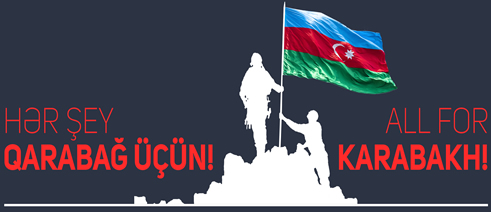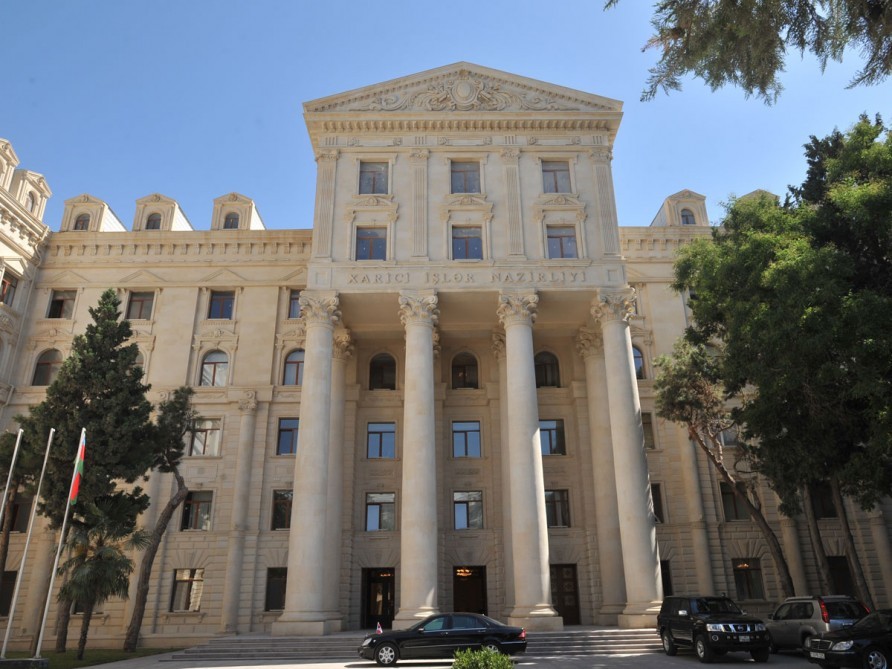


The Ministry of Foreign Affairs of Azerbaijan commented on the statements made by Armenian Foreign Minister Zohrab Mnatsakanyan to official Israeli television channel KAN NEWS, Trend reports.
As such, according to the Armenian minister, Israel’s arms trade leads to the destruction of the Armenian people, and the arms race in the region does not serve to establish peace and security.
Commenting on these statements about the arms race in the region, Head of the Azerbaijani Foreign Ministry’s press service Leyla Abdullayeva said that this is primarily a consequence of the aggressive policy of Armenia, which captured and held one fifth of the territories of Azerbaijan under military occupation.
"The situation is also aggravated by total ethnic cleansing in the occupied lands of Azerbaijan. That is, it is a matter of causal relationships of events taking place in the region. In the absence of a policy of territorial claims, military aggression, occupation and ethnic cleansing, there will be no need for an arms race, and this will lead to the establishment of peace and security in the region. In his interview, the Armenian Foreign Minister also states that Armenia is committed to the establishment of peace and security in the region, seeking the resolution of the conflict on the grounds acceptable to all parties. However, speaking of the acceptability of the decision suiting “all parties”, Minister Mnatsakanyan deliberately keeps quiet about the principled position of the world community about the need for the complete, immediate and unconditional liberation of the occupied territories of Azerbaijan and the return of the expelled Azerbaijani population including the Azerbaijani community of the Nagorno-Karabakh region of Azerbaijan, which is one of two parties interested in the resolution of the conflict. As is known, all relevant decisions and resolutions of international organizations, primarily the UN Security Council and the UN General Assembly, express support for the sovereignty and territorial integrity of Azerbaijan within its internationally recognized borders. Currently, it is still possible to achieve tangible results in advancing the negotiation process through the manifestation of political will in achieving the necessary conditions for a peaceful resolution of the conflict. These are the expectations of Azerbaijan and the entire world community from the political leadership of Armenia. But time is a factor, and it is obvious that it works against Armenia, the aggressor," said the head of the press service of the Azerbaijani Foreign Ministry.
The conflict between the two South Caucasus countries began in 1988 when Armenia made territorial claims against Azerbaijan. As a result of the ensuing war, in 1992 Armenian armed forces occupied 20 percent of Azerbaijan, including the Nagorno-Karabakh region and seven surrounding districts.
The 1994 ceasefire agreement was followed by peace negotiations. Armenia has not yet implemented four UN Security Council resolutions on withdrawal of its armed forces from the Nagorno-Karabakh and the surrounding districts.